READFIELD — By the time Natalie Whitten, 12, and Ella Stevens, 11, sat down to talk to Ali Mohamed on Friday morning, they were hitting their stride as interviewers.
“Why did you come here?” “What are your plans?” “Were you ever frustrated with the process?”
Mohamed, seated next to a desk intended for middle schoolers, glasses perched on his forehead, answered each in turn, with thought and deliberation.
What brought these particular people together at the Maranacook Community Middle School was citizenship. Whitten and Stevens are studying immigration, and Mohamed was getting ready to take his Oath of Allegiance to the United States – along with 30 other people from around the world – and become a U.S. citizen.
In the normal course of events, these three people might never have sat down together for a few minutes to talk, but this was not the normal course of events.
Dan Holman, a teacher at Maranacook, thought that taking students to a naturalization ceremony would expand on what the students have been learning at the middle school. But on inquiring, he found that the number of students and staff who would go could not be accommodated, so he invited the ceremony to the central Maine school instead.
“We’re putting this on with all the pomp and circumstance a middle school can muster,” he said.
On Friday, dressed for the occasion – boys mostly wearing ties, girls mostly wearing dresses – students opened doors for and escorted the soon-to-be-citizens, their families and friends, from the entrance to the gymnasium where the ceremony would take place, or to a classroom for an interview. Some students, like Whitten and Stevens, had prepared questions to ask those who consented to be interviewed.
“They asked probing questions,” Mohamed said, shortly after his interview concluded. “They were pertinent questions.”
Mohamed came to the United States in 1994 as a refugee fleeing the ongoing civil war in his native country, Somalia. He and his family lived for a while in Georgia and then settled in Maine. His wife and their oldest son are citizens, but he put it off while he attended school and looked for a job.
Mohamed said holding the naturalization ceremony in the middle school in rural Maine, rather than in one of the state’s larger cities, is a good thing.
“The students can see the larger picture,” he said. “They can see there are consequences to conflicts, as we see with the refugees from Syria in Europe.”
The current exodus of people from troubled countries such as Syria brings back memories of crossing international borders to get to somewhere safe.
“This helps these students to think internationally and understand they are part of a larger world,” he said.
After the Oath of Allegiance was administered, each new citizen was presented with a certificate and, from the students, a small American flag.
“I think this is as good as we can get, as educators,” Holman said at the close of the ceremony, as the new citizens hugged their families and took photos with their smartphones. “Years later, they will remember this.”
Copy the Story Link
Send questions/comments to the editors.

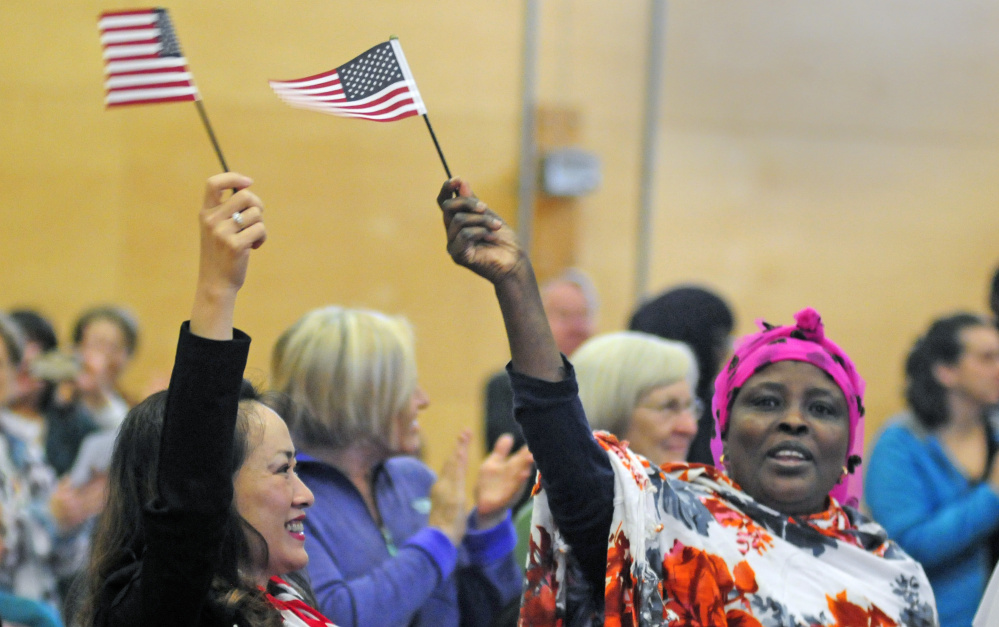
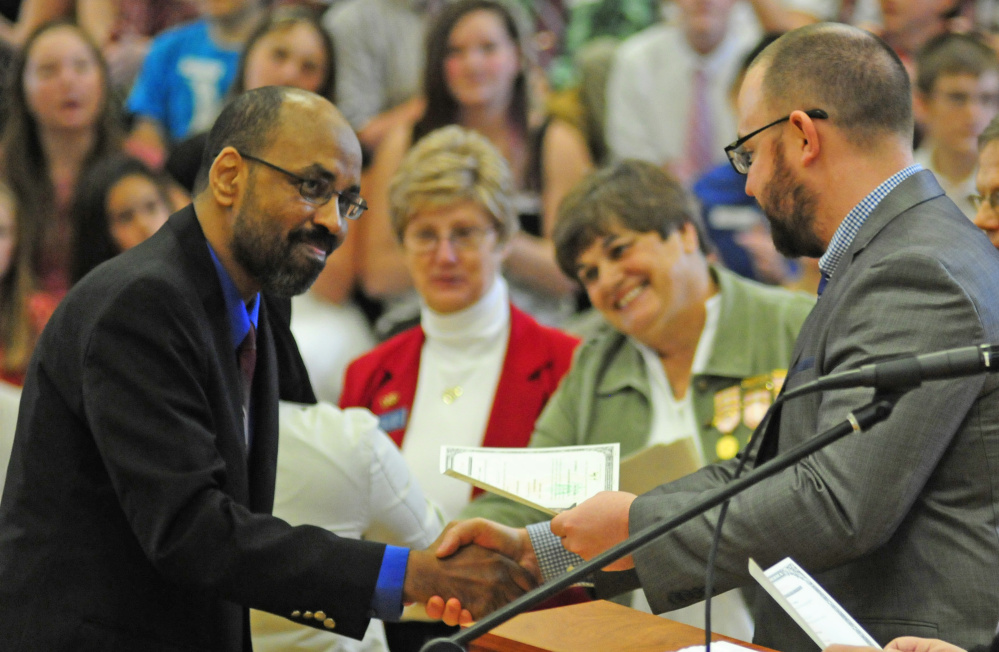
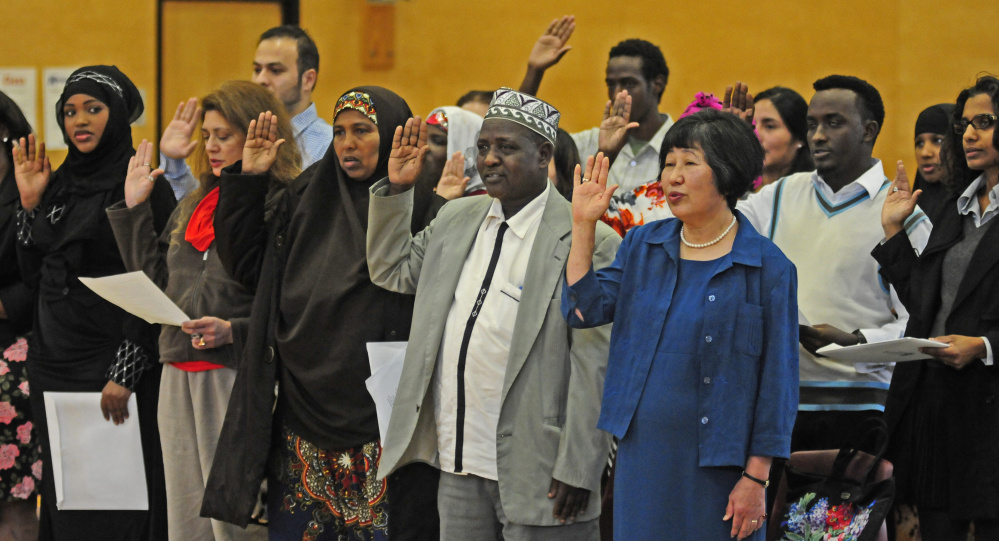
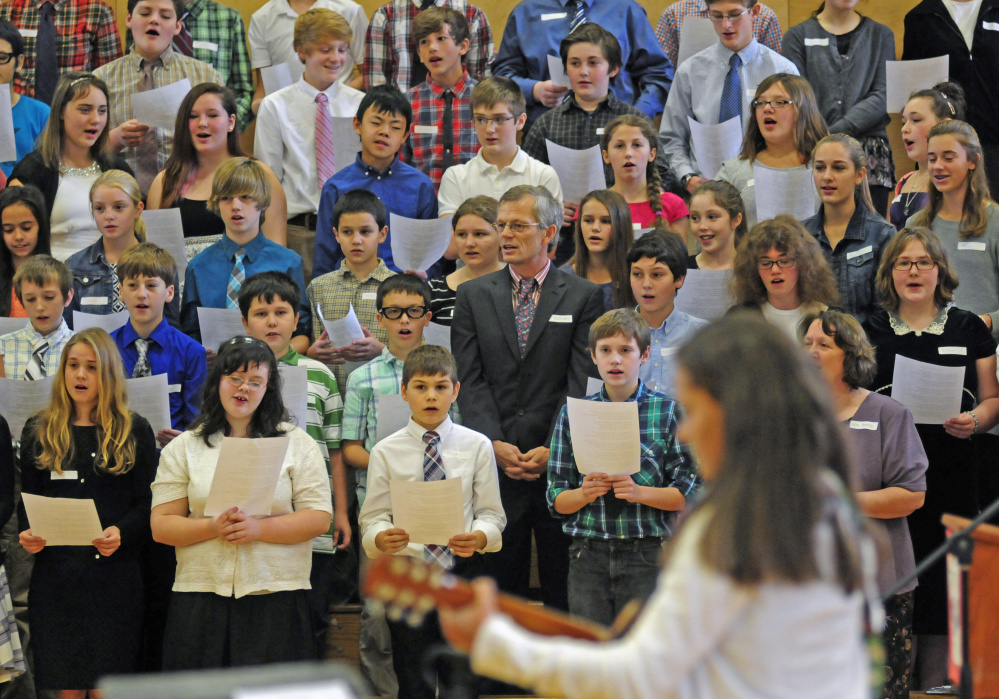
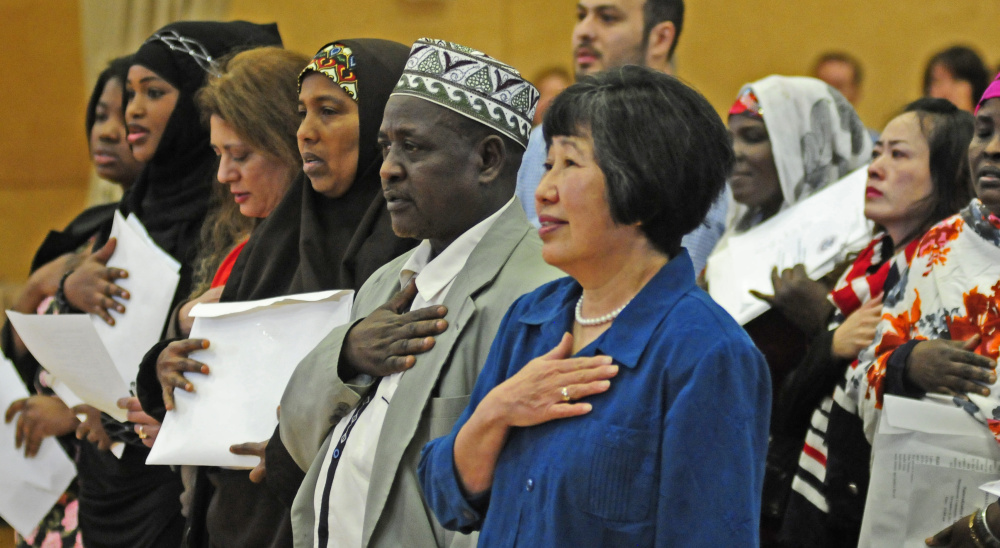
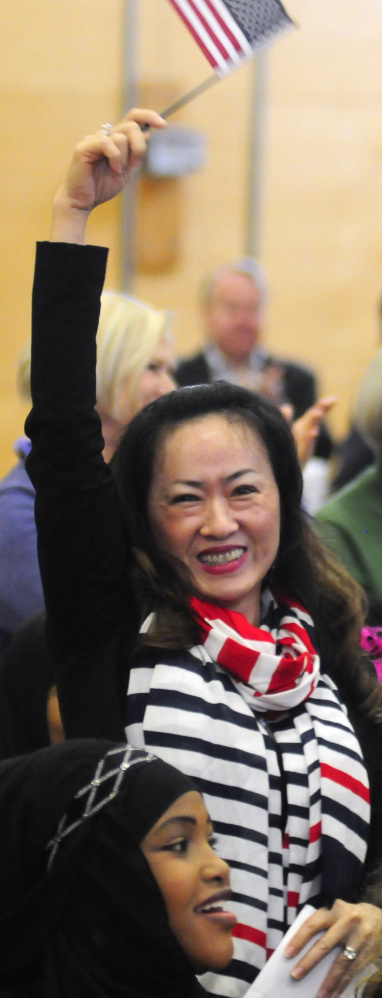

Success. Please wait for the page to reload. If the page does not reload within 5 seconds, please refresh the page.
Enter your email and password to access comments.
Hi, to comment on stories you must . This profile is in addition to your subscription and website login.
Already have a commenting profile? .
Invalid username/password.
Please check your email to confirm and complete your registration.
Only subscribers are eligible to post comments. Please subscribe or login first for digital access. Here’s why.
Use the form below to reset your password. When you've submitted your account email, we will send an email with a reset code.